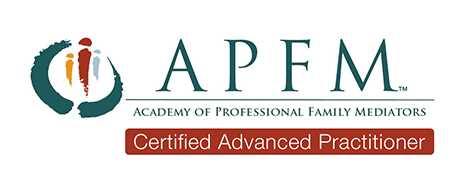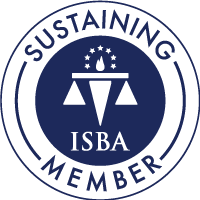What makes a couple divorce?
Some say financial problems. Some say extramarital affairs. Others say people just grow apart. While each of these 
John Gottman, psychologist at the University of Washington and founder of the Gottman Institute, has identified “four horsemen of the apocalypse” for marriage. Four behaviors which–when they become the defining pattern in marriage–sink the relationship.
First horse–Contempt
Do you ever :
- roll your eyes when your spouse speaks?
- interrupt when they are talking to interject your opinion/feelings?
- deride your spouse or their opinions to others?
- dismiss your spouses concerns or desires?
- find it impossible to articulate what is important to your spouse and why?
These are the signs of contempt.
This one behavior, according to Gottman, signals a death knell for marriage–whether the couple actually divorces or not.
Contempt reveals that the spouse considers him/herself superior to her spouse. This builds a solid wall between the spouses–eliminating the possibility for the healthy interaction necessary for marriage.
Please note–no marriage is going to crumble because a wife rolls her eyes once or a husband interrupts on occasion.
But,
if this is the pattern. If this defines how spouses relate. The marriage will die.
How do I repair?
Begin with correcting the behaviors. Start consciously and intentionally treating your spouse with honor. This includes:
- letting your spouse complete his/her thought without interruption. Then, first, before giving your side–articulate to your spouse what you heard and ask if that is accurate.
- refuse to make any gesture that demeans your spouse–rolling eyes, crossing arms and huffing, walking out of the room when they speak.
- consciously praise your spouse to others–his/her opinion, desires, dreams for the future.
- make a list of all you admire in your spouse and why you married him/her.
- make a list of all the ways he/she is better than you–and why you need him/her.
Actively working to change demeaning behaviors into honoring behaviors opens the door to trust and intimacy. Pulling the marriage back from the brink.
Second horse–Criticism
Do you:
- use the words “always” and “never” when referring to your spouse. I.e. “You always forget the trash” or “You never think of anyone but yourself”
- think first (and only) of what your spouse did wrong, when conflict arises?
- ably name all your spouses faults, and few of their strengths?
- talk with your friends about how your spouse fails you far more than how they help?
- make your spouse or their feelings/ideas the butt of jokes in front of others?
When these behaviors define how you relate to your spouse, you are killing your marriage. Criticized spouses withdraw–into their work, into other relationships that make them feel good, into football.
How do I repair?
To reestablish connection, concretely and routinely go out of your way to show your spouse the ways you value them. This happens when you:
- intentionally say to your spouse and others what you value about him/her. The 10:1 rule helps. For every critical remark, make sure there are already 10 affirming statements in the relationship account.
- take time, in an argument, to first get your spouse’s perspective before slinging accusations or proceeding from assumptions
- remind yourself what your spouse adds to the relationship and why you need him/her.
Again, every spouse has criticized the other at some point. But, when a husband or wife comes to feel they simply can’t win–can do nothing right–they stop trying. No marriage survives a spouse who has given up. The couple may stay legally bound–but the relationship ends.
Third horseman–Defensiveness
Do you:
- see yourself as the victim–with every one else, especially your spouse, out to get you?
- make excuses for why you can’t come through on agreements?
- blame others for difficult situations?
- expect others to adjust to your choices?
- make every argument about what the other person did wrong?
These traits define a defensive pattern in marriage. If you can’t take responsibility for your part in a conflict, the conflict never gets resolved. And, conflict ridden relationships don’t last.
How do I repair?
Adopt a 2-step process. When conflict comes, ask:
- How did I contribute to this problem?
- How can I contribute to the solution?
The beauty–often defensiveness comes from a desire for control. Owning your role in a situation gives power.
Understanding what you did wrong lets you choose to do something right. Something that will get you closer to the marriage you want. Something to make a real difference in the situation as you contribute to the solution.
Horseman 4–Stonewalling
Do you:
- answer a text when your spouse is talking to you?
- walk out of the room if the conversation gets difficult?
- yell, fling accusations, or call names to shut down a conversation?
- lean back, fold your arms, and refuse to respond?
- ask to get back to your spouse later, but fail to follow through?
These habits of relating exhibit stonewalling. As toxic as contempt–stonewalling shuts off relationship. Criticism and defensiveness try to push blame onto the other spouse. Damaging–but at least still engaged in the conversation.
Stonewalling spouses retreat altogether. Preventing conversation. Shutting out connection. Starving the relationship in order to protect self. If the top priority is self, the union won’t likely survive.
How do I repair?
If you stonewall, it’s likely you feel unprepared for the battle. That your spouse always knows more. Thinks faster on her/his feet. Ambushes you. So you mentally or physically flee the battle.
This pattern often arises if you are married to a person who exhibits contempt or criticizes your every move. The combination of behaviors creates a downward spiral in heated interactions.
Instead of seeing your spouse as the enemy, come to see the issue that divides you as the enemy. You can offer, “Honey, I know you are upset. I want to work through this with you. But, I need time and calm to do so. Can we first figure out what went wrong? Then, can we work together to fix it?”
As couples see the conflict trying to divide them as the enemy, and then team up to defeat that enemy–they become a “we.” The whole purpose of marriage.
Most couples will experience any (or all) of these behaviors at some point. The threat to the relationship comes when any of them define how you treat each other.
The good news. You made this pattern. Which means you can create a new one. One that nurtures and strengthens your relationship rather than tearing it down. Just as getting nourishing food and rest to a sick person leads to health, getting nourishing relational patterns into a sick marriage leads to a healthy marriage.
If you see these patterns in your own relationship and would like help setting a new course, The Resolution Center offers marital mediation. Please call 317-443-9740 or email info@TheResolutionCenterIndy.com for a free consultation on how we might be able to help you chart your course.





